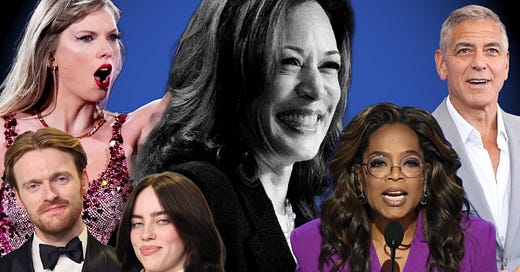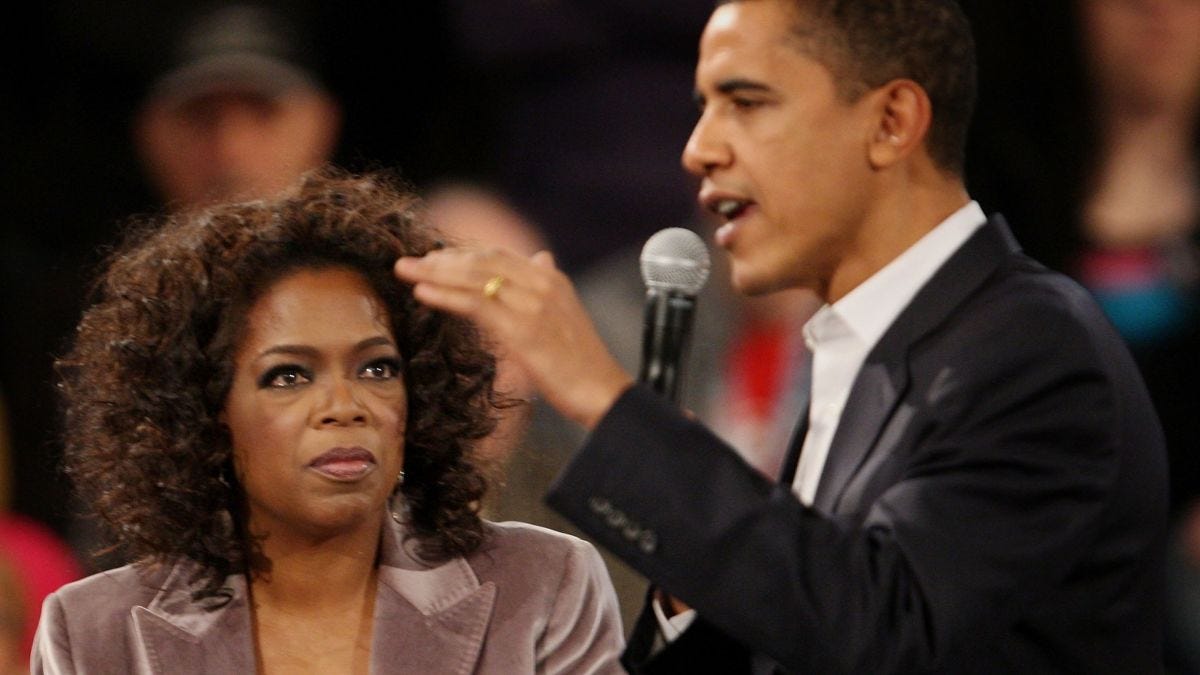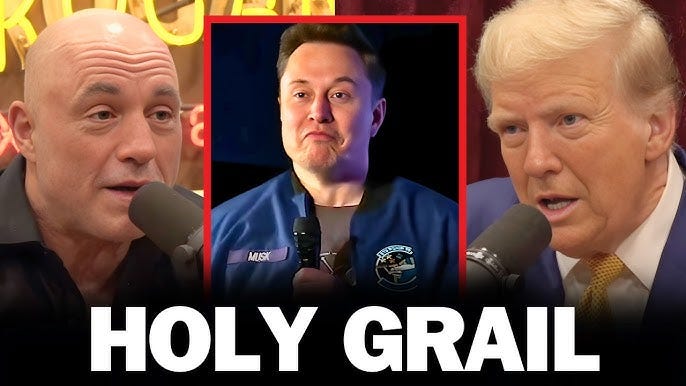Borkowski Media Trends: US Election Special
As celebrity endorsements and traditional media influence fade, a new era of political power emerges through social platforms and countercultural icons.
The declining influence of celebrity endorsements
When Oprah Winfrey endorsed Barack Obama in 2007, choosing him over then-frontrunner Hillary Clinton, it was widely considered a turning point in the Democratic Primary, a moment that offered the then-Senator increased viability as a candidate and, by some counts, directly contributed more than one million votes to his cause. Winfrey was considered the most powerful woman in the country, a significant influence on the buying, reading, and, crucially, thinking habits of swathes of American women (and some men).
When Taylor Swift, perhaps the only contemporary mainstream figure who could claim such a wide reach, endorsed Kamala Harris in the summer, the overwhelming response was “What took you so long?”.
Amongst the innumerable takeaways from this election, as Democratic staffers agonise over what went wrong, perhaps a question worth asking is whether the celebrity endorsement is dead. Katy Perry, Lady Gaga and Beyonce all offered their support to Kamala Harris in the last few weeks, stumping for her at rallies in key states, while George Clooney, Julia Roberts and Oprah herself all vocally endorsed the Vice President. In July, when Harris formally announced her candidacy, Charli XCX tweeted “Kamala IS brat”, three words that, perhaps even more than Swift’s post, became the election’s defining endorsement.
But, crucially, none of them made a difference, and the days of a celebrity contributing more than a million votes seem long gone. On one hand, we often hear that celebrities, especially in Swift’s case, are direct contributors to voter registration, with numbers routinely spiking after posts on Instagram. What Harris’ poor showing seems to make clear is that these posts, and any subsequent endorsements, rarely translate into significant electoral movement, be it because those voters, often young first-timers, are already inclined to vote for liberal candidates or merely that the young voter remains, for now, outnumbered by older, arguably more conservative voters, broadly unattuned to the political inclinations of celebrities.
Celebrity endorsements have long been a cornerstone of Democratic campaigns, but their sway now seems muted in a culture divided by the advent of alternative entertainment and news sources – no single figure, with the possible exception of Swift, maintains such a monocultural appeal, one that could feasibly extend into an increasingly malignant political sphere. For Trump fans, his lack of endorsements is no doubt an active part of his appeal – as an outsider, a counterpoint, he defines himself against the Hollywood elite epitomised by the likes of Katy Perry endorsing Harris. The conservative heterodoxy, including figures like Elon Musk and Joe Rogan, arguably wield greater power because of their self-defined anti-celebrity – speaking to similarly large bases, their endorsements are positioned as countercultural, radical even. This is what Democrats have long misunderstood about Trump, even dating back to 2016 – while he might crave the acceptance of Hollywood, his supporters actively reject it. In an election dependent, at least in the accepted narratives that prevailed before this week, on the courting of ‘independents’, it is unclear what wheeling out Lady Gaga, a star with a predominantly young, liberal fan base, was supposed to achieve.
Oprah’s endorsement of Obama lives as a historical milestone akin to Sinatra’s 1960 endorsement of Kennedy. With a media landscape endlessly, maybe hopelessly, divided, they are far more likely to be joined by Elon Musk than by Taylor Swift.
The true extent of The Media’s impact over the election
Does Trump’s victory serve as another reminder that traditional media’s impact is waning, or are we jumping the gun to credit Elon Musk’s X and Joe Rogan’s most-listened-to-podcast-ever as having a decisive mark over the election result? As we wait for the full diagnosis, it’s safe to say the myriad factors that go into voters’ decisions are too complex to fully comprehend in this humble edition of The Trends.
Separating these two heavyweights, The Joe Rogan Experience boasts tens of millions of subscribers, many of whom have bought into Rogan’s charm and charisma. While previously billing himself as a “bleeding heart liberal” on social issues, his political stance is murky enough that his endorsement of Trump became global news. Given this came so close to the election, it’s hard to believe this had a major effect, especially as Trump was already performing well amongst Rogan’s demographic, predominately young white males.
The Elon Musk factor was almost certainly more significant. Musk has radically changed how X functions, loosening the platform’s content moderation rules, which has led to an increase in noise, and what counts as misinformation or truth often depends on one’s political perspective. However, thanks to a 2020 study by Wondwesen Tafesse, we know negative sentiment is associated with an increase in shares, or in other words, negative news travels further. Ipsos Public Affairs found that positive economic news circulating this election cycle - record stock market highs and strong job growth - wasn't reaching voters as effectively as negative stories about Biden’s administration, especially those amplified by X's owner.
Combined with a conservative-leaning media and X’s sustained anti-Democrat rhetoric (from Musk himself), it likely directly influenced voting patterns. We can summise it wasn’t the main decider, but with the lack of regulation around X as a media platform, it's almost impossible for traditional media to compete on the same level. And with Trump in power for four more years, Musk’s current influence will likely go unchecked under the government to be.







The impact of the Trump victory and enhanced Musk involvement is likely to be thousands of public sector workers loosing their jobs , education and other public services for the working and even middle classes being reduced to nothing, and the rest of the world being treated to the ugly site of thousands of the very poorest and most exploited being rounded up and shipped across the border at gun point. So while America becomes the kind of fascist state it has long tried to impose on the rest of the world, while thousands die of poverty and war as the post world war consensus of the United Nations is effectively neutralised - the real issue is if Lady Gaga has lost the ability to influence voters or not? Bit like wondering if the Nazi’s decision to adopt the symbols of Latvian folk culture and use red and black as its primary design option was a sensible choice.